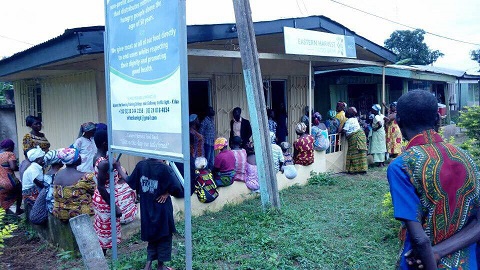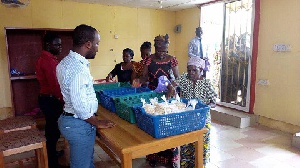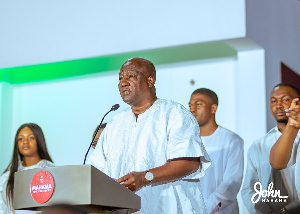A non-profit charity organization, Eastern harvest food bank, has begun distributing food for hungry people who are above the age of 50 years daily, in New Juaben Municipality of the Eastern Region.
The program also targets the vulnerable in society who could hardly afford four square meal a day.
The aim, according to management of the food bank is to reduce hunger, whiles respecting the integrity of the aged in the society and to promote volunteerism within the Eastern Region and beyond.
The food bank in less than a month after it was outdoored, has fed close to 1,500 old people. They receive rice, oil, beans, tomato paste, gari, sugar,eggs,vegetables,fruits among others on a daily basis.
Director of the bank, Eric Darko said he was motivated to replicate the programme in Ghana after a visit to the United States of America where he got the opportunity to work as a volunteer.
“I was selected to participate in a United States Department of State programme/International Visitor Leadership Programme in June 2015, and as part of the programme, I volunteered at Northwest Harvest Food Bank in Seattle.
“I was so inspired that I realised Ghana deserved such a humanitarian programme, considering the alarming poverty level in the country where people are struggling to afford even a meal per day.

“So I decided to replicate same in Ghana on my return. Over the years I have been pooling resources from my little earnings to get a storage facility and stock it with food and God being so good, we have started.”
The Sustainable Development Goal two enjoins countries to end hunger, achieve food security and improve nutrition by 2030.
Mr Darko said he believes that for Ghana to achieve this, Ghanaians must cut down food waste and donate for distribution to persons struggling to get food.
“In Ghana, we waste food in our homes, we overeat as well, we can cut down food waste in our homes and donate it to feed the poor; also you don’t need to have so much before you donate; just buy something and drop it for Food Bank.”

According to the Director, Food Bank is currently dependent on support of individual local donors and volunteers.
He said the organisation would soon roll out programmes, including awareness creation, food waste reduction programme and media campaign, to help gather more food to correspond to plans to extend the project to other districts in the region.”
He is, therefore, appealing to Ghanaians and corporate Ghana to donate to support the Food Bank project to sustain it to help Ghana partly meet the Sustainable Development Goals.
Click to view details



Regional News of Wednesday, 25 October 2017
Source: www.ghanaweb.com

















